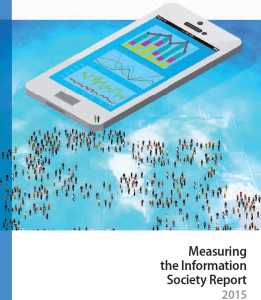A new report, published by the Nordic Council of Ministers, projects sharp growth for the Nordic data centre market until 2025, based on competitive advantages such as abundant renewable energy, reliable power supply, low energy prices, political stability and faster time-to-market primarily due to ease of doing business.
“The Nordics have the potential to evolve as a truly global data hub, connecting Europe to North America and Asia,” says Philip Low, independent analyst and Chairman of BroadGroup, commenting on a new report published by the Nordic Council of Ministers, “Data Centre Opportunities in the Nordics – An Analysis of the Competitive Advantages”.
The study, which was carried out by COWI Group, compares the attractiveness of the Nordic region to the so-called FLAP-D region (Frankfurt, London, Amsterdam, Paris and Dublin), against the background of accelerating data volumes worldwide and the challenge of tackling sustainable growth of cloud, streaming and computing services.
According to the report’s findings, the Nordics are likely to gain market share thanks to five key advantages: abundant renewable energy, reliable power supply, low energy prices, political stability and faster time-to-market primarily due to ease of doing business.
The Nordic data centre construction market is estimated to attract annual investments of EUR 2-4.3 billion by 2025. This corresponds to an installed annual capacity of 280-580 MW per year. The Nordic region is well connected to the UK, continental Europe, and the US, and major fibre optic installations linking the Nordics to North America and Asia are in the planning stages.
“Cloud and hyperscale companies such as Facebook, Google, Amazon Web Services and Apple have made major investments in Nordic data centres recently. The Nordics meet all key criteria for site selection, ranging from reliable, renewable energy to world class fibre optic infrastructure. This presents a powerful proposition for corporate investment in existing and new facilities” says Jakob Dybdal Christensen, Chief Market Manager, COWI, and one of report’s lead authors.
In addition to electricity production that is two thirds renewable across the region, from sources such as biomass, hydropower, geothermal and wind power, the report underscores the competitive value of advancing cross-border collaboration in the Nordics.
Philip Low, Chairman of BroadGroup, adds: “Contrary to popular belief, the Nordic region is not just well connected and integrated to continental Europe, the UK and the U.S, but increasingly to Asia. The Nordics are speeding ahead with intercontinental installations along the Polar fibre route. This means we may be seeing the quickest routes to moving traffic via the Nordic countries in the near future.”
Invest in Iceland’s contact for further information on the report is Einar Hansen Tomasson, Manager, Invest in Iceland, E-mail
einar@invest.is, Tel: +354 8998553.
About The Nordic Council of Ministers:
The
Nordic Council of Ministers is the official body for formal inter-parliamentary co-operation among the Nordic countries. Formed in 1971, it brings together ministers from Denmark, Norway, Sweden Finland and Island, as well as representatives from the autonomous regions of the Faroe Islands, Greenland and the Åland Islands. The council’s presidency is rotated on a yearly basis.


